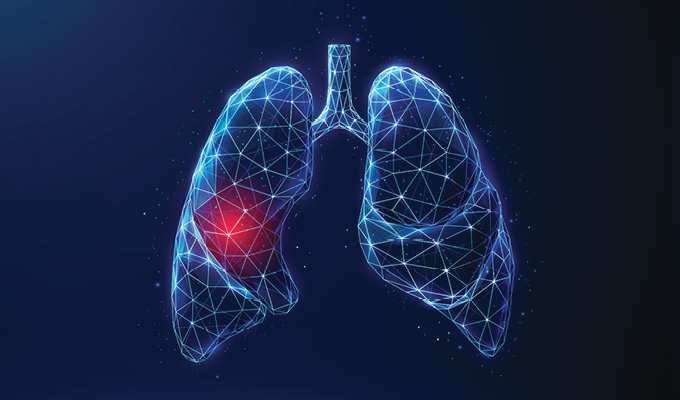Dr. Shani Paluch-Shimon, director of Breast Oncology at Hadassah Medical Organization, which includes a dedicated service for the care and treatment of young women with breast cancer. She is a medical oncologist with a Masters in Epidemiology from the London School of Hygiene & Tropical Medicine. Dr. Paluch-Shimon was the first to establish dedicated services for young women with breast cancer, in Israel. Her key areas of clinical interest and research are breast cancer in young women, BRCA-associated breast cancer, triple negative breast cancer and neo-adjuvant therapies.
Dr. Paluch-Shimon has co-authored over 50 scientific papers and has authored ESO-ESMO international guidelines on breast cancer in young women, the ESMO clinical practice guidelines on screening and prevention of cancer in individuals with a hereditary breast and ovarian cancer syndrome. She is a member of the ESO-ESMO international consensus panel for the management of advanced breast cancer and a member of the European consensus panel on genetic testing in advanced breast cancer.
Dr. Paluch-Shimon is the subject editor for breast cancer for the ESMO clinical practice guidelines committee. She is currently a member of the ESMO Breast Faculty, a core faculty member in the European School of Oncology and co-chair of the European School of Oncology’s Breast Cancer in Young Women Conference. She was a member of the Israeli Ministry of Health committee evaluating the national breast cancer screening policy and is a member of the Israeli National Cancer Council.
Professor Beatrice Uziely is the head of Oncology and Ambulatory Services at the Hadassah Sharett Institute of Oncology, a center which serves both the population of greater Jerusalem and as a referral center for cancer patients from all over Israel and abroad. She graduated from the Hebrew University of Jerusalem with a degree in biology and she received her medical degree from the Hebrew University-Hadassah Medical School.
After beginning her career at Hadassah Medical Organization, she went on to do a fellowship at the University of Southern California Norris Cancer Center before returning to Jerusalem where she has become one of the most renowned medical oncologists in Jerusalem. Her key areas of clinical interest include the connection between hormonal genetic expressions in tumors and their reaction to treatment, invasiveness of tumors, clinical research in hormonal and chemical treatments, and finding genetic markers in order to diagnose their grade and much more.
She received the Lando Award for Clinical Research on the management of metastatic thyroid cancer and the Hebrew University Faculty Prize. She has co-authored over 60 scientific papers and is a member of the Israel Medical Association, the Israel Society of Clinical Oncology, the American Society of Clinical Oncology and the European Society for Medical Oncology.
With Breast Cancer Awareness Month winding down, it’s important to remember this: Breast cancer, perhaps more than many other diseases, has become such a well-known topic among women that it can be easy to forget that there is always more to learn on the subject. This bonus episode of “Hadassah On Call” aims to let our listeners in on the latest in causes, treatments and research.
We originally broadcast this episode in October 2020, but thought it was so important for our listeners that we've decided to re-broadcast it this year. The show features a wide-ranging conversation with Professor Beatrice Uziely, the head of Oncology and Ambulatory Services at Hadassah's Sharett Institute of Oncology, and Dr. Shani Paluch-Shimon, the director of Breast Oncology at Hadassah Medical Organization – and includes some fresh audio from when we recently caught up with the doctors. Here’s some of what you’ll hear on this special episode...
How COVID-19 may lead to an uptick in breast cancer cases: Due to sheltering-in-place during the global pandemic, many women have opted to skip their usual mammogram checkups. “It’s a major concern,” said Dr. Paluch-Shimon. “It's very possible that we'll see some delays in diagnosis. In some cases, even a small delay can be a disaster.” Added Professor Uziely: “I had a few patients –they saw something in their breast seven or eight months ago and didn't go for a mammogram. So I urge everybody to go and do their checkups. And if you find something, go urgently to a doctor.”
Young patients with breast cancer face unique challenges: Hadassah’s approach to breast cancer treatment is a multidisciplinary one. Doctors, psychologists, social workers are all part of the care team and a case manager known as a patient navigator helps guide each individual through the process. Young women, in particular, can be coping with a multitude of difficulties – from body image issues to worries about fertility. One way the doctors help is by offering fertility preservation treatment. “Hadassah was one of the first hospitals in Israel to do this,” explained Dr. Paluch-Shimon. “We can actually take out a piece of ovarian tissue and freeze it and it can be re-implanted back into the woman after several years. And eggs can be retrieved from there. That little bit of ovarian tissue can actually return hormonal functioning for a woman. So we have a lot of options today. And, of course, we have all the expertise we need here.” Professor Uziely said it all boils down to the relationship she has with her patients. “It’s amazing to see someone who will continue their life as usual as possible,” she said. “This is really overwhelming for a physician.”
What else you’ll hear in this episode:
- Why men should also get checked for breast cancer
- Angelina Jolie brought new awareness to triple-negative breast cancer, and there are new treatments available
- What steps you can take to help prevent breast cancer
- A sneak peek of Hadassah Hospital's breast cancer center expansion
Further learning
Hadassah kicks off Breast Cancer Month with insights from experts
Breast Cancer and BRCA Gene Research at Hadassah Hospital
Read a transcript of this episode.
"Hadassah On Call: New Frontiers in Medicine" is a production of Hadassah, The Women's Zionist Organization of America. Hadassah enhances the health of people around the world through medical education, care and research innovations at the Hadassah Medical Organization. For more information on the latest advances in medicine please to hadassah.org.
Subscribe to our podcast on iTunes, Google Play, or your favorite podcast app. If you haven't already, please leave us a review on the iTunes store. It only takes a minute and when you do it helps others discoverr "Hadassah on Call."
The show is hosted by Benyamin Cohen and edited by Skyler Inman and the team at the Hadassah offices in both New York and Israel.
This episode includes a promotion for:
Our recent sleep episode:
Many of us have trouble sleeping at night and if you don't sleep well, it could lead to all sorts of health issues. We recently interviewed Dr. Joel Reiter on a recent episode of the “Hadassah On Call” podcast. We talked about his latest research, plus the various aspects of our lives that contribute to poor sleep, like living through the stress of a pandemic. “Because you take something like insecurity – insecurity about your workplace, about your parents, about your health, and add to that, the quarantines, staying at home for entire days and nights, and not getting out of bed, and you get an increase in sleep problems,” he said. You can listen to that episode right now at hadassah.org/cantsleep.
Hadassah membership:
As one of our podcast listeners, you've been hearing all about how Hadassah is here, healing the world. Every day, innovations from Hadassah's hospitals save lives in Israel, the US, and around the world. Being a member of Hadassah means you're a part of it, and that's something to be proud of. Hadassah is here for you, here for each other, and here for the world. Learn more about the many advantages of membership at hadassah.org/hadassahishere. Membership starts as low as $36 a year. If you're already a member, think about making someone you love a part of our healing work. Membership makes a beautiful gift.
Also, we're looking to you our listeners, for which medical experts you'd like to hear from in the weeks ahead on this podcast. Please let us know by sending an email to us at marketing@hadassah.org.



.svg)


